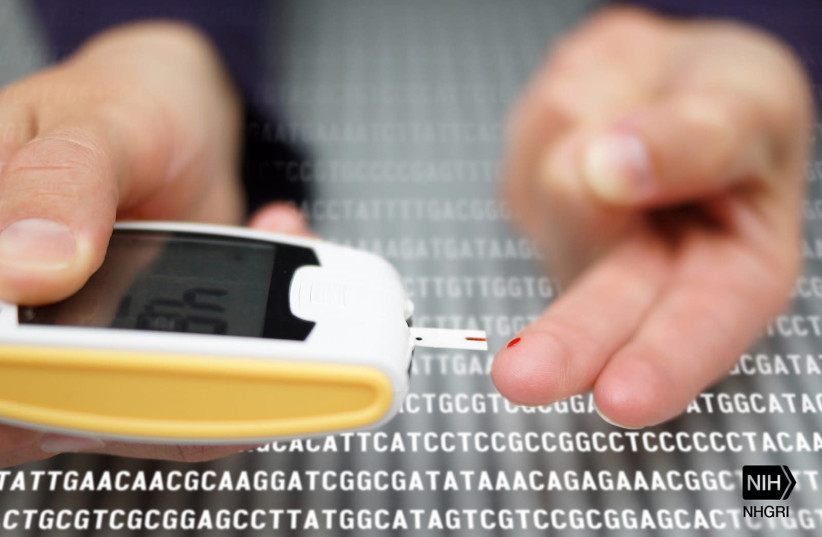People who feel lonely are at greater risk of developing type 2 diabetes (T2D) according to a new peer reviewed study published on September 28 on SpringerLink.
The incidence of type 2 diabetes is continuing to increase and it is one of the leading causes of death worldwide. Thus, Associate Prof. Roger E. Henriksen and his colleagues at Western Norway University of Applied Sciences examined the association between the risk of developing T2D and feelings of loneliness, taking into account depression and insomnia.
"Given that loneliness induces a state of chronic stress and may lead to unhealthy eating behavior, it is reasonable to assume that there is a direct link between loneliness and the risk of developing type 2 diabetes."
Prof. Roger E. Henriksen
The research was published in the peer-reviewed journal of the European Association for the Study of Diabetes called Diabetologia.
“As both loneliness and type 2 diabetes have been linked to depression and sleep problems, we also investigated whether any association between loneliness and type 2 diabetes is mediated by symptoms of depression and insomnia,” writes Henriksen.

What links loneliness and T2D?
A growing body of evidence links an individual's risk of developing T2D with psychological stress. Feelings of loneliness may activate the body’s physiological stress response because these feelings often result in a chronic state of distress.
“Although the exact mechanisms are not fully understood, it is believed that activation of physiological stress responses over time plays a central role in the etiology of type 2 diabetes,” notes Henriksen. “For instance, HPA axis activation leads to elevated secretion of cortisol, which in turn leads to increased glycogenolysis and temporary insulin resistance.”
Furthermore, this process also involves changes in how the brain regulates eating behavior and appetite. These changes lead to an increased appetite for carbohydrates and are associated with elevated blood sugar levels. It has been demonstrated in previous studies that stronger feelings of loneliness are associated with the consumption of unhealthy foods.
“Against this background, given that loneliness induces a state of chronic stress and may lead to unhealthy eating behavior, it is reasonable to assume that there is a direct link between loneliness and the risk of developing type 2 diabetes,” Henriksen explains.
In order to test their theory, the researcher analyzed data from the Trøndelag Health Study, also known as HUNT (Helseundersøkelsen i Nord-Trøndelag), and used the results to analyze the associations between loneliness and T2D. HUNT is a large longitudinal health study based on a population from central Norway, containing the health information of over 230,000 people collected through four population surveys: HUNT1 (1984-1986), HUNT2
(1995-1997), HUNT3 (2006-2008) and HUNT4 (2017-2019).
The team used HUNT2, excluding participants having metabolic disorders, type 1 and type 2 diabetes, and those without available blood test data. They then collected baseline information for the remaining 24,024 participants.
“Self-reports of loneliness (HUNT2 survey, 1995–1997) and data on HbA1c levels (HUNT4 survey, 2017–2019) were analyzed to evaluate the associations between loneliness and incidence of type 2 diabetes,” writes Henriksen.
How was the correlation between loneliness and T2D discovered?
Loneliness was measured from the HUNT2 survey where the participants were asked whether or not they had felt lonely over the previous two weeks. A questionnaire was used during HUNT3 to assess the severity of depression symptoms in participants and identify individuals with insomnia.
FINDINGS SHOW that over the course of the study, from 1995 to 2019, some 1,179 (4.9%) of the 24,024 participants developed T2D. They were more likely to be men, older, married and have the lowest level of education.
Overall, the study found that higher levels of loneliness at baseline were significantly associated with a higher risk of developing T2D. In fact, after accounting for gender, age and education level, the researchers found that those who reported being the loneliest were twice as likely to develop T2D than those who reported not being lonely.
The researchers recognize that their study did not examine the exact mechanisms involved and suggest that further research be conducted.
“We recommend that further research is carried out into the role of insomnia and depression in the relationship between loneliness and type 2 diabetes,” notes Henriksen.
“The role of other factors such as diet, obesity and physical activity should also be investigated,” he said. “These are well-known risk factors for type 2 diabetes and have also been associated with loneliness or social isolation. More research on the direct link between loneliness and type 2 diabetes is also needed to better understand the mechanisms at play.”
The researchers also recognize the importance of determining the degree to which other constructs related to loneliness are associated with T2D, such as shyness.
“We recommend that loneliness should be included in clinical guidelines on consultations and interventions related to type 2 diabetes,” writes Henriksen. “It is important that healthcare providers are open to dialogue about an individual’s concerns during clinical consultations, including with regard to loneliness and social interaction.”
